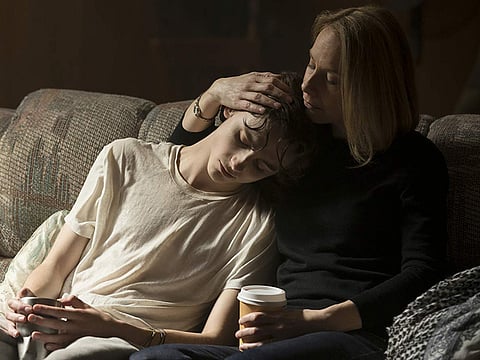‘Beautiful Boy’ film review: Leaves many questions
Rather than plumbing emotional depths, the film skates on sentiment and visual beauty

The question that tears at David Sheff, a magazine writer living in Marin County, outside San Francisco, is “Why?”
Why did his oldest son, Nic, a charming and thoughtful young man who loved drawing, writing, reading and surfing, slide into drug addiction? It’s something many parents in David’s position ask, even as they despair of a satisfying answer. Nic tells his father that crystal meth filled a void in his life. The first time he consumed it, he says, his world went “from black and white to Technicolor,” and he’s reluctant to go back.
More than anything, David wants him back.
‘Beautiful Boy,’ directed by Felix Van Groeningen (‘The Broken Circle Breakdown’) is based on paired memoirs by the real David and Nic Sheff, who are played on-screen by Steve Carell and Timothée Chalamet. The film tilts a bit more toward the parental perspective, emphasising David’s pain and bafflement. But it also incorporates some of his son’s literary sensibility, and conveys the bliss of being high along with the desperation of dependency. We don’t really learn why Nic became addicted, but we do get a sense of what it was like for him and his family to struggle with his disease.
Stories like this tend to vary in setting and details, but also to conform to a certain pattern. Van Groeningen, who wrote the script with Luke Davies, arranges the narrative in chronological curlicues, looping back and forth in time and relying heavily on extended, music-driven montages. The digressions and flashbacks rest on a familiar sequence: a crisis is followed by an attempt at sobriety and, usually, a relapse.
The governing moods are grief, guilt, anxiety and what David calls “psychological terror.” Nic is skilled at lying and emotional manipulation. He cannibalises love and undermines trust, and allows glimmers of his smart, charming self to peak through at strategic moments. David swerves from denial to guarded optimism to exasperation, veering into rage and despair. His wife, Karen (Maura Tierney), Nic’s stepmother, tries to be supportive. Nic’s mother, Vicki (Amy Ryan), who lives in Los Angeles, does what she can to help, though she and David often find themselves quarrelling about what to do and who is at fault.
It is hard not to be touched by the testing of paternal love, or by Nic’s fragility. But ‘Beautiful Boy,’ rather than plumbing the hard emotional depths of its subject, skates on a surface of sentiment and gauzy visual beauty. There is a lot of good music — John Lennon, Sigur Ros, Perry Como — and California vistas so gorgeous that you might wonder if the state’s tourist board had a role in the production. (The cinematographer is Ruben Impens.) But the picturesqueness and the flowing, music-video rhythms of the editing give the film a slick, evasive feel, as if it were too cautious or too cool to confront the worst of what it’s about.
The main performances are similarly coy, as if the actors were protecting the characters from our scrutiny rather than opening them up. Neither Carell nor Chalamet risks losing the audience’s sympathy, which means that neither one fully earns it. The movie almost defensively insists on propositions we had no reason to doubt. Nic is a good kid. David is a good dad. Meth is a terrible, seductive drug.
‘Beautiful Boy’ is not a bad movie. It was made with earnest care and honourable intentions, and concludes with a recitation of one of Charles Bukowski’s best poems. But as much as it may want to illuminate the realities of addiction, it mystifies David and Nic’s experiences, leaving too many questions — how and what as well as why — swirling in the air.
Don’t miss it
‘Beautiful Boy’ releases in the UAE on November 29.
Sign up for the Daily Briefing
Get the latest news and updates straight to your inbox


